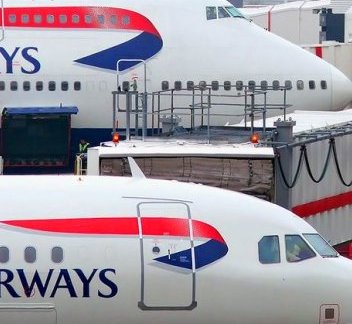Archive for April, 2010
ESO reveals Cayman’s first experience of deflation
(CNS): The Cayman Islands went into a deflationary phase in 2009 for the first time on record, the Economics & Statistics Office has said. In its most recent Consumer Price Index report, published this month, the ESO reveals that the country’s deflationary position was at its deepest point at -2.9% in September 2009 followed by a slight rebound to -0.6% in December 2009. Prices fell on housing, utilities, fuel, transportation, health and communication. While price deflation in housing softened towards the year end and health and communication rebounded strongly, the average inflation rate for the whole year was -1.3%.

Er, actually it’s heads I win, tails I lose
The most depressing point about Mr Iton’s analysis (see Viewpoint below) of the civil fraud charges brought by the US Securities and Exchange Commission against Goldman Sachs is not the tortured misunderstanding of the most basic of principles of the CDO transaction but the inescapable conclusion that the financial services industry in Cayman has clearly failed comprehensively to explain how and why it functions.
It is difficult to know quite where to start in dealing with the misunderstandings (and see too Mr Seales’ effort in Cayman Net News 21/4/2010) but the following may assist (and for further enlightenment I strongly suggest attendance at the Cayman Finance Summit on 6 May at the Ritz Carlton Grand Cayman):
Let us look firstly at the point where Mr Iton is right, albeit for the wrong reason. There is no doubt that the only progressive route for the Cayman Islands financial services industry is to attract the financial professionals who can undertake the financial engineering of the transactions so that the substantive aspects are undertaken in the Cayman Islands. The Premier has this right in terms of both the necessary amendments to the immigration policy to render the Cayman Islands more attractive in terms of security of tenure for these professionals, and to reverse the rollover policy in relation to the financial services industry. In this way a higher value can be obtained from each transaction by both the public and the private sectors. However it must be recognised that we have a steep hill to climb in terms of the comparative attraction of Cayman.
Daily evidence of the failure to understand better the financial industry is itself a major deterrent to attracting the highest quality professionals across a broad range of new disciplines, regardless of how attractive the new immigration policies may be. There is no tax incentive for a US citizen to move (other than State tax) and we are not geographically proximate to the United Kingdom, so on neither ground is the Cayman Islands favoured and nor has it been for the past four decades. As matters stand this necessarily means that the Cayman Islands Government and the local economy must derive its revenue (which currently amounts to over 50 per cent of Government expenditure on the public sector and generally) not from the provision of substantive financial engineering in relation to these transactions, but from ancillary services provided of a legal, accounting and administrative nature and from fees. That fundamental is the one that must be changed if the Cayman financial services industry is to continue to support Cayman Islands Government expenditure. It is by no means a given that it can do so.
Now for the points where we do not agree with Mr. Iton’s analysis.
The SEC claim is based on civil fraud not criminal fraud and is in the nature of a complaint concerning non-disclosure. There is doubt that the SEC claim is soundly based in law and on the facts and it is vigorously defended by Goldman Sachs. Notwithstanding the vehement denials, informed comment suggests that the claim is politically motivated and it is timed to correspond with President Obama’s support for financial services regulation.
To put the issue in context, the claim concerns US$1 billion, or just less than 0.0002% of the dollar value of the structured finance transactions undertaken by Cayman Islands issuers in the past decade. We need to understand that as with any business venture, inherent in the relationships that have resulted in the financial industry having generated billions of dollars for the Cayman Government, is an element of risk. In fact, the Cayman Islands financial services industry has been spectacularly successful in managing that risk. Only the financially naive, or certain British politicians, believe foreign regulators when they attempt to point fingers of blame at the Cayman Islands for their failings in BCCI, Enron or Parmalat.
Mr Iton does not understand a derivative CDO trade. There is necessarily a long position that matches the short position. Every CDO transaction must have a winner and a loser. What Mr Iton meant to say was “Heads Iwin, Tails I lose”, which describes perfectly the functioning of a multi-billion dollar marketplace. No investors were relieved of US$1 billion who did not understand that one side would lose. One party to the trade bet that mortgage values would go up and one party to the trade bet the mortgage values would go down. It takes two to tango and it took two to make the bet. At the time Mr Paulson, who was an unknown to Wall Street, was one of the very few persons betting that the trade would go down. It is his role, if any, in the selection of the securities within the portfolio and the disclosure of that role that is at issue. The parties that took the long side of the trade were highly sophisticated and believed the value would go up. No one forced them to take the trade. The long side of the trade knew what securities were in the underlying asset class that comprised the related derivative positions.
The issue is simply whether Mr Paulson’s involvement, if any, in the selection of the asset class was disclosed adequately. That is a difficult question for the court and will turn on evidence as yet undisclosed.
As a self-interested captain of the financial industry I must repeat my warning that the industry is indeed contributing to the local economy at an optimal level. Mr Iton’s point is a non-sequitur. The start point of the discussion is admirably described in the Miller Report: What is the appropriate level of expenditure by Government for an Island population of 60,000 people? $500,000,000 annually by any comparative standard should have been enough. The financial services industry can only produce what it can produce and it has been seriously hampered both by a short-sighted immigration policy and the external global economic crisis. Even if you do not understand the structuring of a CDO, you should understand that, as any decent tailor will tell you, your cloak must be cut according to your cloth.
The issue of the fees that may be charged by the private sector and the Government in the Cayman Islands in relation to any offshore transaction is driven by a number of factors, none of which Mr. Iton describes. There is a balance that has to be struck between the quality of services that we can provide in the Cayman Islands given the available personnel and, given competitive forces, the price that can be charged by the private sector and government in providing them. That is a sensitive economic dynamic that has developed over four decades and one which is constantly under review.At the moment, it should be said, it is a dynamic that is under considerable stress as a result of the recent (and hopefully temporary) fee increases introduced by the Government to deal with the domestic financial shortfall. If and when Cayman can present itself in a better light and attract superior financial professionals, possibly the overall fees charged per transaction may be increased. But that is an analysis that requires a high degree of expertise and understanding not, incidentally, evidenced in Mr Iton’s commentary.
A supreme financial services provider, whether a Government or in the private sector, can indeed charge whatever he wants. Those who are not supreme can only charge what the market will bear and need to be happy doing so. When I last looked I saw delusions of supremacy but a shortage of the real thing. This means that the only question for Mr Iton is whether the Cayman Islands Government and the private sector should be in the business of generating fees from financial services on the present basis or not. If the level of outrage at the SEC claim is so great and universally accepted that the answer is that the Cayman Islands financial services industry should not be involved in these types of transactions, we are led to the inescapable conclusion that Mr Iton must immediately find about $250 million per year in revenue from an alternative source. If he does not then the only conclusion is the reduction of the civil service by about 75 per cent. That would be a mistake. Those who agree it would be a mistake must understand that we do not currently have the luxury here and now of faux moral outrage.
Anthony Travers is the chair of Cayman Finance

Glimmers of recovery in Caribbean tourism
 (CNS): According to a new report on Caribbean Tourism, the decline in the industryacross the region continued throughout 2009 with many destinations seeing further falls. But despite the extremely difficult year for the sector, it also states that some destinations in the region began to recover towards the year end. Arrivals did not grow year-on-year, however, but the pace of annual decline began to slow. Full-year declines were mostly below 10% across the region with a few exceptions, including the Cayman Islands where tourism was down 10.2%.
(CNS): According to a new report on Caribbean Tourism, the decline in the industryacross the region continued throughout 2009 with many destinations seeing further falls. But despite the extremely difficult year for the sector, it also states that some destinations in the region began to recover towards the year end. Arrivals did not grow year-on-year, however, but the pace of annual decline began to slow. Full-year declines were mostly below 10% across the region with a few exceptions, including the Cayman Islands where tourism was down 10.2%.
The authors of the Caribbean Tourism Market Report said the slowing of the decline at the year end was probably due to the traditional increase in visitor arrivals following the end of the hurricane season in November and the holiday season around Christmas and New Year.

Extinction threat for mangroves warns IUCN
 (ZEENEWS.COM): As the world observes Earth Day Thursday, there is not much to cheer for the coastal communities whose primary source of livelihood — mangroves is under threat due to unchecked anthropological pressures and natural calamities. The International Union for Conservation of Nature (IUCN), a network of several conservation groups, has set alarm bells ringing by warning that more than one in six mangrove species worldwide are in danger of extinction due to coastal development and other factors, including climate change, logging and agriculture. Mangroves are salt-tolerant plants of tropical and subtropical inter tidal regions of the world andare extremely delicate and fragile.
(ZEENEWS.COM): As the world observes Earth Day Thursday, there is not much to cheer for the coastal communities whose primary source of livelihood — mangroves is under threat due to unchecked anthropological pressures and natural calamities. The International Union for Conservation of Nature (IUCN), a network of several conservation groups, has set alarm bells ringing by warning that more than one in six mangrove species worldwide are in danger of extinction due to coastal development and other factors, including climate change, logging and agriculture. Mangroves are salt-tolerant plants of tropical and subtropical inter tidal regions of the world andare extremely delicate and fragile.
UDP wasted year says PPM
(CNS): The last minute scrambling to put together a three year plan and the 2010/11 budget is a result of a wasted first year in office by government, a member of the opposition has said. Former Cabinet minister Alden McLaughlin told CNS that it was a shame that the premier had not chosen to take a longer view of the country’s financial future and enter into negotiations with the UK when first elected to office instead of bringing a pretend budget then subjecting the country to a yo-yoing of decisions. He said that on the eve of the UDP’s second budget the country was still very unsure about its short and long term financial future.

CFOs not helping
 (CNS): In its management response to the auditor general’s latest report the Ministry of Finance said the task force had “encountered a magnitude of challenges” in its attempts to correct government’s accounting deficiencies. It said chief financial officers were unavailable to respond to queries and a there was a lack of internal controls, policies and procedures. It also cited a lack of support for transactions made by many of the government entities as one more of the many issues preventing the ministry and the task force from resolving the problems and producing the reports.
(CNS): In its management response to the auditor general’s latest report the Ministry of Finance said the task force had “encountered a magnitude of challenges” in its attempts to correct government’s accounting deficiencies. It said chief financial officers were unavailable to respond to queries and a there was a lack of internal controls, policies and procedures. It also cited a lack of support for transactions made by many of the government entities as one more of the many issues preventing the ministry and the task force from resolving the problems and producing the reports.
The ministry also warned that it would require a transition period to address the accounts problems, when the PMFL would be relaxed until 2016/17, removing the requirement to do annual reports and just submit financial statements.
The latest report from the office of the auditor general is an update on the State of Financial Accountability Reporting. The first edition was published in 2008 and the second was released to the public yesterday, 20 April. In the updated report Dan Duguay reveals that, two years on, the government has made little if any real headway in tackling the delinquency in its financial accounting, despite having engaged a task force and spent around $1 million more on accountants in this financial year.
In its response to the damning report, however, the Ministry of Finance, which took over the responsibility for the situation from the portfolio of economics almost one year ago, admitted that there were a number of major impediments facing the task force, despite the fact it and the ministry was working hard towards producing the outstanding financial reports.
“These challenges and issues include the lack of support for transactions, the lack of internal controls, policies, procedures and oversight, the unavailability of CFOs to respond to queries, the cumbersome manner of securing the necessary permission to view each ministry’s IRIS data and the consolidation of the government’s financial statements,” the ministry said. It also stated that without proper teeth to sanction ministries, portfolios or statutory authorities and government companies, neither the Ministry of Finance or the task force were able to produce credible and timely financial information. It said it was “not possible to produce the accounts if chief officers did not willingly play their part in the reporting process,” as specified under the Public Management and Finance Law (PMFL). “The Ministry of Finance does not have authority to enforce this lack of reporting,” the ministry added.
However, Auditor General Dan Duguay believes they do and that under the PMFL the ministry can hold the CEOs and CFOs responsible and set consequences for their failure to meet the demands of the law. The AG said in his first report that he had stopped short of recommending that the financial secretary take responsibility because he believed it would be clear in everyone’s mind that strong leadership would be required from somewhere to address this issue.
But the AG said this has not happened and there was little evidence of commitment and leadership with regard to addressing the problem. Duguay noted while it was still the responsibility of each CFO to get their own accounts in order, it required central leadership and the problem would never be addressed until the right person with authority took responsibility.
Duguay therefore recommended that government appoint a leader that would have that authority and would make this their priority. The ministry responded by stating that it would welcome the assignment of a leader provided that the person was given enhanced governance structures that would hold COs accountable.
The ministry also stated that the reason why the accounts were proving so difficult to do was because of the current governance framework. As a result the ministry had submitted to Cabinet a proposal to centralize the core government’s accounting function under the Ministry of Finance which would then hold COs accountable. A proposal has also been made to relax the reporting requirements in the PMFL and allow stand-alone financial statements until 2016/17, giving government entities a chance to catch up and develop what the ministry said were appropriate financial systems.
One of the problems, however, with only presenting financial statements is that the figures are not placed in context for the wider public to understand what the government is doing with public funds. Under this proposal the man in the street is unlikely to be able to get to grips with the full state of the public purse and the extent of government expenditure or, for that matter, cuts for another seven years.

UK’s Chagos study manipulated, consultant claims
 (Times Online): A supposedly independent study on the feasibility of letting the exiled Chagos islanders go back to their homes was manipulated to reflect the British Government’s opposition to their return, a Times investigation has revealed. The 2002 feasibility study lies at the centre of the Government’s case to the European Court of Human Rights on the islanders’ right to return to the archipelago four decades after they were deported from Diego Garcia to make way for an American military base. In its submission to the court the Government contended that the study, “which was prepared and adopted by all the independent experts involved, clearly indicated that resettlement is not feasible”.
(Times Online): A supposedly independent study on the feasibility of letting the exiled Chagos islanders go back to their homes was manipulated to reflect the British Government’s opposition to their return, a Times investigation has revealed. The 2002 feasibility study lies at the centre of the Government’s case to the European Court of Human Rights on the islanders’ right to return to the archipelago four decades after they were deported from Diego Garcia to make way for an American military base. In its submission to the court the Government contended that the study, “which was prepared and adopted by all the independent experts involved, clearly indicated that resettlement is not feasible”.
However, one of those independent experts, Stephen Akester, said his conclusions that the islands could be resettled were erased from the study amid political pressure.

UK support cops arrive
 (CNS): Updated – The promised contingent of supporting police offices from the UK has finally arrived in the Cayman Islands. Fourteen serving UK cops arrived on Wednesday 21 April to support the RCIPS in the investigation of major crime. The team consists of senior investigating officers, investigators and specialist interviewers. According to the BBC, the group consists of four officers from West Midlands Police, three from Warwickshire, three from West Mercia and four from Staffordshire. The team will work alongside the local police in a combined effortto reduce incidents of violent crime as well as investigating current crimes and some unsolved offences, continuing the efforts to bring the offenders and perpetrators of violence to justice.
(CNS): Updated – The promised contingent of supporting police offices from the UK has finally arrived in the Cayman Islands. Fourteen serving UK cops arrived on Wednesday 21 April to support the RCIPS in the investigation of major crime. The team consists of senior investigating officers, investigators and specialist interviewers. According to the BBC, the group consists of four officers from West Midlands Police, three from Warwickshire, three from West Mercia and four from Staffordshire. The team will work alongside the local police in a combined effortto reduce incidents of violent crime as well as investigating current crimes and some unsolved offences, continuing the efforts to bring the offenders and perpetrators of violence to justice.
Keith Bristow, head of crime business at the UK Association of Chief Police Officers is quoted by the BBC as saying, "This is an excellent opportunity for the four West Midlands regional police forces to unite and provide support to the Cayman Islands during a challenging time.
"All of our officers and staff are dedicated to protecting people from harm and this is a really positive opportunity to share resources and provide some excellent development opportunities for our officers. "

BA returns to the skies as UK lifts air traffic ban
 (CNS): British Airways has begun re-operating its Nassau/Cayman shuttle today, signalling a resumption of service following the closure of UK airspace on 15 April after Iceland’s EyjafjallajoKul volcano erupted, spewing a cloud of ash across Europe. Wednesday’s flight from London, Heathrow will bring in passengers bound for Nassau and the Cayman Islands and return 189 passengers from both islands to London, British Airways has said. Three flights to London from Nassau and Cayman were cancelled after the closure of the UK airspace grounded flights from all airlines.
(CNS): British Airways has begun re-operating its Nassau/Cayman shuttle today, signalling a resumption of service following the closure of UK airspace on 15 April after Iceland’s EyjafjallajoKul volcano erupted, spewing a cloud of ash across Europe. Wednesday’s flight from London, Heathrow will bring in passengers bound for Nassau and the Cayman Islands and return 189 passengers from both islands to London, British Airways has said. Three flights to London from Nassau and Cayman were cancelled after the closure of the UK airspace grounded flights from all airlines.

DoA told to release dolphin standards
 (CNS): The Information Commissioner has ordered the Department of Agriculture (DOA) to release a copy of the “Alliance of Marine Mammal Parks and Aquarium Standards and Guidelines” to a member of the public who made an FOI request and was refused. Despite claims by the DOA that the document was confidential Jennifer Dilbert said there was no evidence that it had been provided to DoA in confidence. She pointed out that as the document had been referenced as informing public policy it should be accessible by the general public. The document in question had formed the basis of the DoA’s standards for the management and treatment of the dolphins kept at the islands’ two captive facilities.
(CNS): The Information Commissioner has ordered the Department of Agriculture (DOA) to release a copy of the “Alliance of Marine Mammal Parks and Aquarium Standards and Guidelines” to a member of the public who made an FOI request and was refused. Despite claims by the DOA that the document was confidential Jennifer Dilbert said there was no evidence that it had been provided to DoA in confidence. She pointed out that as the document had been referenced as informing public policy it should be accessible by the general public. The document in question had formed the basis of the DoA’s standards for the management and treatment of the dolphins kept at the islands’ two captive facilities.